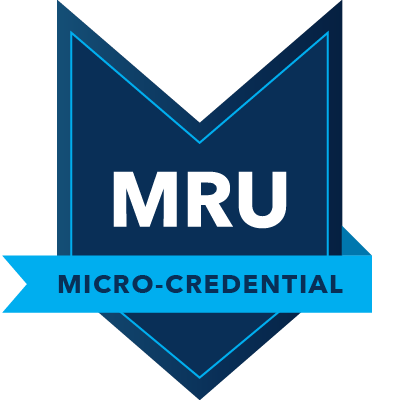
Format
3 required courses (63 hours)
Delivery
Online | Learn more
Duration
Complete in 1 year, or up to 3 years
ESG reporting is the collection and analysis of data on an organization’s environmental, social and governance (ESG) standards, crucial information for socially conscious investors.
Environmental, social and governance (ESG) reporting is increasingly in the forefront as socially conscious investors, stakeholders and organizations include these factors in their analysis of business and organizations. As Alberta adds to its energy sector with sustainable production such as solar and wind, and carbon capture, utilization and storage (CCUS), organizations need a strategic approach to their ESG reporting.
This suite of courses is tailored to those who want better visibility of an organization’s impact in the ESG arena, as well as those pursuing a career in sustainability/ESG. They also benefit those responsible for ESG reporting and who want a better understanding of what goes into an ESG report.
In these courses, you will learn how to deliver the core content of a corporate ESG report, including analyzing and understanding relevant data. Delve into globally recognised ESG standards and sustainability frameworks to determine which standards are most appropriate to your organization and industry. Explore the links between data typically included in an Environmental and Social Impact Assessment (ESIA) study and the data reported in a corporate ESG or sustainability report.

Micro-credentials
Each course in the ESG Reporting Extension Certificate is a designated micro-credential offered through the Faculty of Continuing Education. Our micro-credentials enable recent post-secondary graduates and established career professionals to develop and demonstrate specific skills that employers need. Complete a micro-credential course to earn a digital badge that you can share online so employers can verify your achievement. Learn more.
Highlights and benefits
Real-world knowledge | Understand globally recognized ESG standards and sustainability frameworks
Gain hands-on experience | Demonstrate workplace competencies to potential employers
Earn a digital badge | For each course completed, earn a digital badge through MyCreds™ to verify your demonstrated knowledge and skills in ESG reporting
Earn a recognized credential | Complete three courses to earn an ESG Reporting Extension Certificate.
ESG Reporting and the future of work
ESG reporting is the collection and analysis of data on an organization’s environmental, social and governance (ESG) standards.
This type of reporting has been rising in prominence as socially conscious investors, stakeholders and organizations include these factors in their analysis of business and organizations.
As Alberta adds to its energy sector with sustainable production such as solar and wind, and carbon capture, utilization and storage (CCUS), organizations need a strategic approach to their ESG reporting.
MRU offers an ESG Reporting Extension Certificate as well as a new micro-credential in Scope 3 Emissions Reporting.
Associate Vice-President of Research, Scholarship and Community Engagement, Connie Van der Byl, answers some important questions about why ESG reporting is important and why ESG reporting skills will be in high demand in the years to come.
Learn more
How can training in ESG reporting benefit your career?
Instructor and specialist Reem Tanta explains how Mount Royal's programming is especially relevant for today's corporate and career landscape.
Learn more
Tools and Skills in Impact Assessment
If you are seeking career advancement in IA regulatory and permitting fields, this course empowers you with both technical expertise and strategic skills, consider registering for our Tools and Skills in Impact Assessment Micro-Credential.
View courses
Information session
Interested in learning more about our Environmental, Social and Governance (ESG) Reporting Extension Certificate? Speak with program staff and instructors, and have your questions answered. Join us for a free virtual information session on Wednesday, August 20, 2025 noon - 1 p.m. MDT
Register nowCourse schedule
Course schedule by semester
| Fall (Sept. - Dec.) |
Winter (Jan. - April) |
Spring/Summer (May - Aug.) |
|
|---|---|---|---|
| Overview of ESG Reporting | ON | ON | |
| Fundamentals of ESG Reporting | ON | ON | |
| ESG Reporting and ESIA Process | ON | ON |
Legend
BL: Blended (Online & Classroom)
CL: Classroom
FT: Fast Track
ON: Online
IDS: Independent Study
P: Practicum
This schedule is subject to change. Courses start on various dates within each semester. Fall schedule and registration is available in June; Winter schedule and registration is available in November; and Spring/Summer schedule and registration is available in March.
Program questions?
